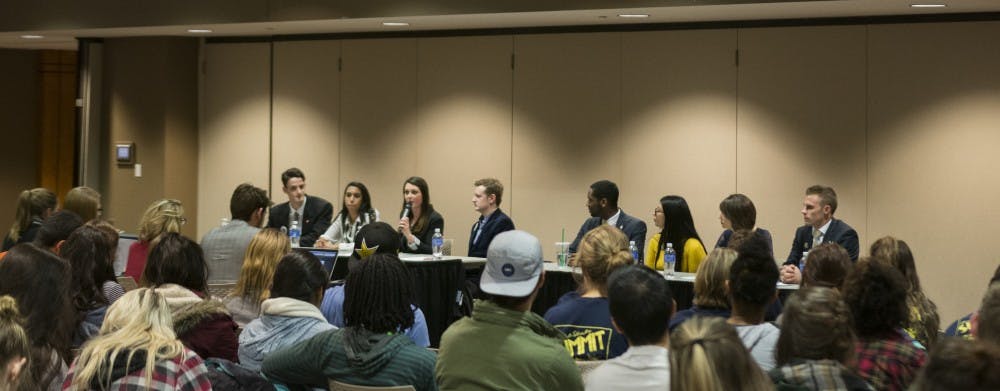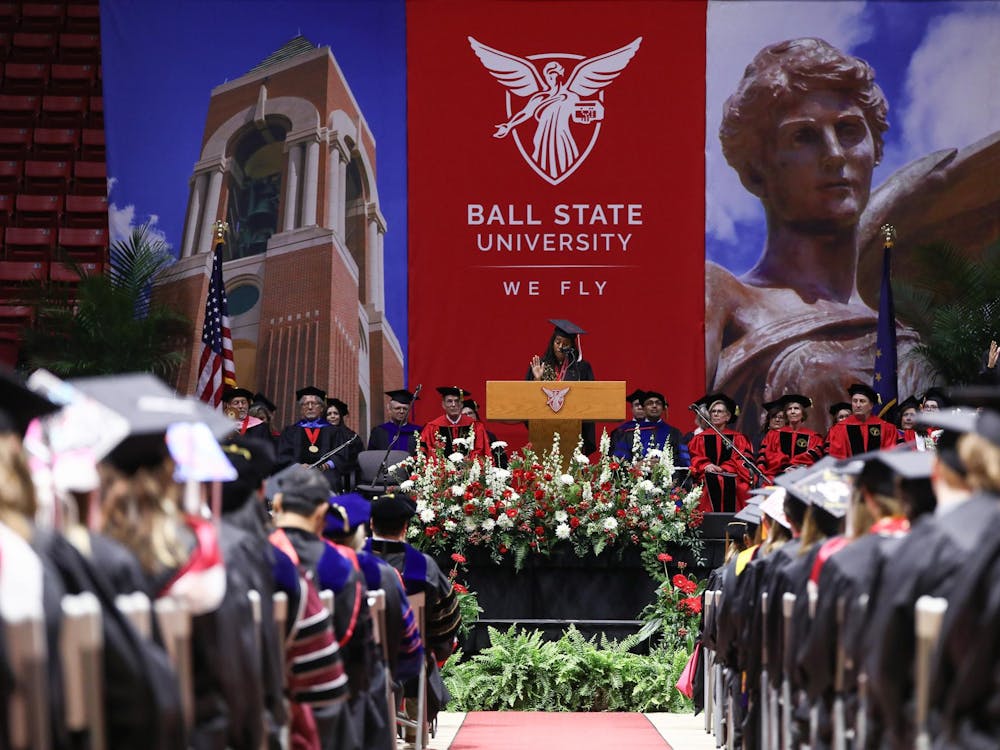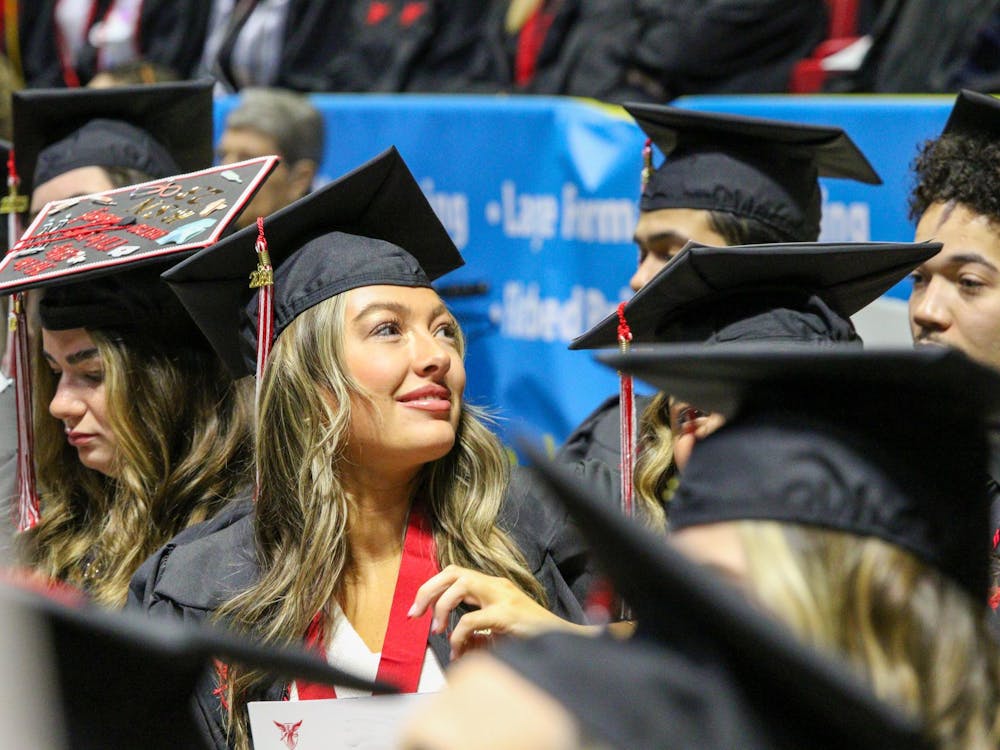Voting opens 8 a.m. Feb. 29
Voting concludes 5 p.m. March 1
Editor’s note: In the SGA All Slate Debate, the moderator said 18 “told the Daily News that [they] have not reached out to any common core professors,” about their OpenStax platform point. This is incorrect. 18 told the Daily News that they had contacted open core professors; however, they said the professors were not willing to use their names in the Daily News.
Compared with recent years, attendance was low at this year's Student Government Association All Slate Debate. With the chairs half filled in Cardinal Hall A in the L.A. Pittenger Student Center, slates 18 and Summit went head-to-head to answer some difficult questions.
One of the questions current SGA president Jack Hesser asked the slates was to give a run-down of the costs each platform point would take to be implemented, and with whom they would be working.
Emily Halley, tresorial candidate for Summit, said a lot of points would not pull from funds and some can’t be determined until a slate is elected because they are covered under university contracts.
“We sat down with the slate and went through every single platform point and there’s a few we didn’t think there would be much expenses," Halley said.
No Expenses:
- Advisers
- Diversity mentorship
- Unified media
- Counseling services
- Dead Week
Depends on the Ball State and Muncie communities:
- Environmental Initiatives
- Safety on campus
- Cardinal Pride – $1,750
- Goes to shirts and food
- Smaller organizations — half executive fund, half co-sponsorship
- $6,000
- Co-sponsorship is never fully utilized
But Race Bates, tresorial candidate for 18, said the exact funding for the points wasn’t their concern right now. Instead, they want to focus on what the students think and what is feasible for them to do.
“We got together as a slate and we discussed each platform point and the perplexity and kind of the fees around it,” Bates said. “We haven’t reached [out to] the administration or sat down and talked about the fees, because that’s not our priority right now.”
Bates said there is $26,400 in executive expenses set aside, so that’s the basis of where they would start with their finances.
Matt King, presidential nominee for 18, said their points of giving 18 percent of their salary back to students, creating a student media agency and making the student security program with UPD wouldn’t cost anything.
Hesser also gave each slate a chance to clear up one misconception about themselves.
Greg Carbo, vice presidential candidate for 18, said he wanted to get ride of the idea that his slate is not diverse.
“People … look at us and they look at the color of our skin and they go, ‘Oh they’re not diverse,” Carbo said. “In reality, we have a Spanish person — my family is Puerto Rican — we have [Bates] representing the African American community, Lexi [Williams] and [King] representing, of course, Caucasian, but when it comes down to it, we focus on diversity on every aspect.”
Williams, secretarial nominee for 18, said the comments on diversity bother her because she’s spent two years working with diversity within SGA.
James Wells, presidential candidate for Summit, said he wants to change the misconception that SGA doesn’t care about the students.
“As far as SGA is concerned, most students aren’t aware that this organization exists, and if they do know that SGA exists, most of the time they think SGA doesn’t really care about them,” Wells said. “What we want to show is that student government is here to serve the students. The four exec board members, along with the executive cabinet, the 50 senators … we want to show that they care about your concerns, your needs and are working hard to get those ideas turned into action.”
One question posed from social media asked the slates, if elected, if they would try to implement a platform point from the opposing slate.
King said he thought Summit's platform point involving the Counseling Center was solid in the idea and research.
“At the end of the day, we’re students, but a lot happens on this campus. There’s stress, there’s craziness, there’s relationships and studying and it’s a support system, and we need to make sure we have that support system in place," King said.
Wells said two platform points from 18 his slate liked are the art on campus and diversity talk points.
“[Students] have said when [Williams] brought up how they had 'make a difference' signs out [around campus], they really loved that. They want to showcase more student artwork across campus and really show the character of the student body around Ball State,” Wells said. “[And] any time we can address diversity and give students the opportunity to educate others on the different multicultural groups that exist in the world is a good opportunity.”
Elections open online at 8 a.m. Feb. 29 and close at 5 p.m. March 1. Winners will be announced sometime after 5 p.m. March 1 in the Office of Student Life.





